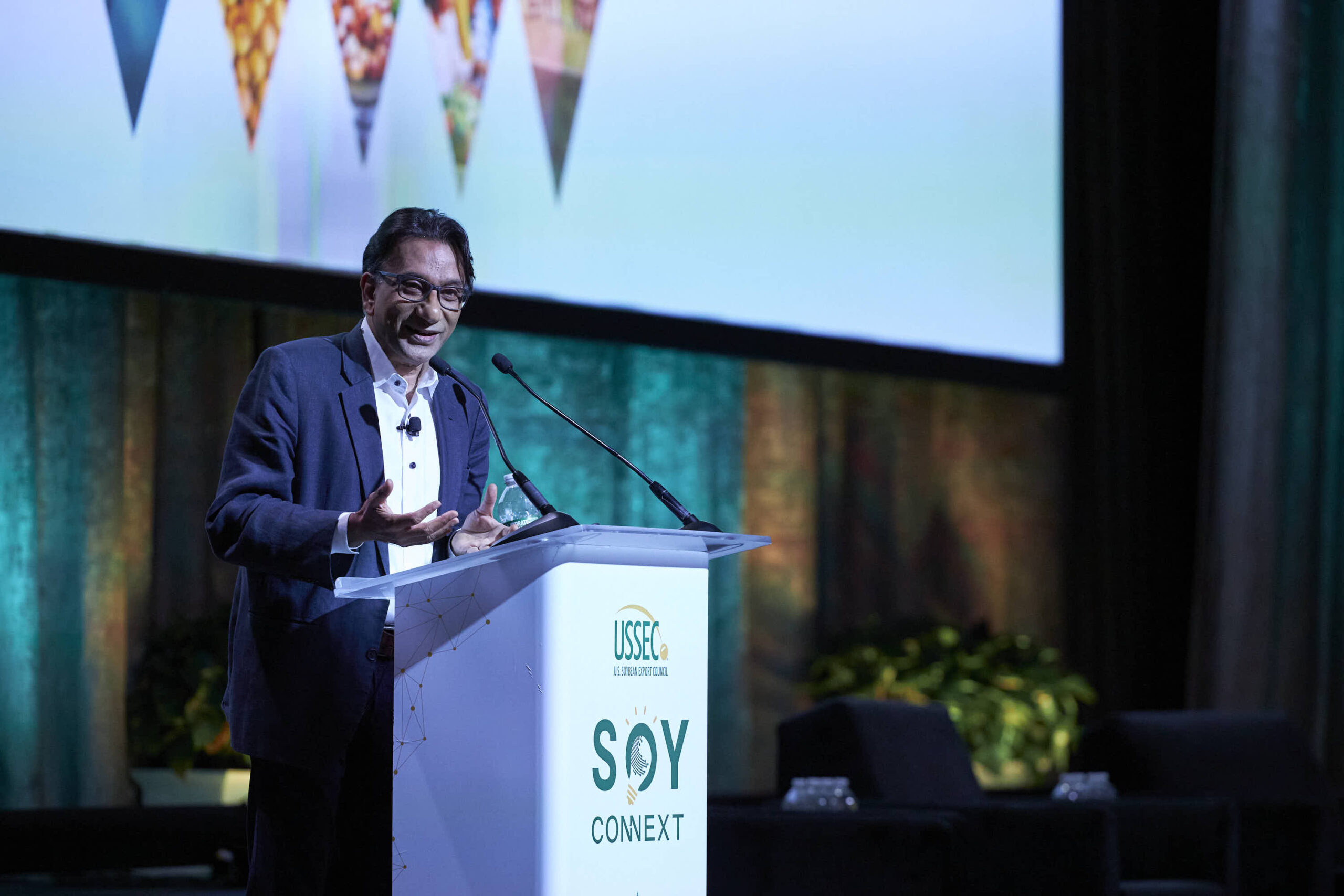
Maybe, according to Jahangir Aziz, J.P. Morgan Head of Emerging Market Economics Research. During Soy Connext in New York City, he shared five reasons why economists think a global recession might be diverted. However, he cautions there are many nuances to this story.
- The high inflation that came about in 2021 and 2022, was driven to a large extent by supply chain disruptions. These are slowly fading away, Aziz said, noting that freight charges are closer to pre-pandemic levels from a five-fold increase during the pandemic.
- The global economy is showing resilience, yet growth is very divergent. Aziz explained that the United States and emerging market economies continue to show resilience, but China and Europe are weak links. In China, both domestic and export prices are falling. Couple this with the strong U.S. dollar, and this could make for very powerful global disinflation, which will last at least three to four months. In emerging markets, Brazil hiked interest rates from 2% in 2021 to 13.75% in the second half of 2022. Brazil held this level until its August meeting, where it dropped interest rates to 13.25% — the first decrease since the fourth quarter of 2020.
- At this time, global economic growth is largely driven by the services sector, while the manufacturing sector has been negative during the past eight months. “We’re hoping that in the second half of the year, we see a convergence between the services and manufacturing sectors,” Aziz said.
- Trade in global commodities is largely driven by what happens in China, he said. When you look at commodities being imported, there is no resemblance at all to what is happening in the growth of the country’s economy. Chinese imports are significantly above what you would consider in a slowing Chinese economy. “We believe there is a separate stockpiling taking place in China that has nothing to do with growth and everything to do with national security,” Aziz said.
- At this time, Aziz shared that many economists have taken a U.S. recession off the table for 2023, but that does not mean central bankers are comfortable with the economic environment. Before now, central bankers have preferred interest rates of 2%, he added, but “in this world, I don’t think they would mind being in the 3% range.”
During Aziz’s presentation at Soy Connext, he also shared two other scenarios that could lead to a global recession. In fact, he said J.P. Morgan’s bias is for a recession that comes later, has a higher peak policy rate and proves deeper than is generally expected.
“This is not something economists feel good about,” he said. “We don’t know the answers, but this is the best way we can look at the world and describe what may happen going forward at this point in time.”
Even if there is no recession, businesses must continue to evolve and look outside themselves.
One of the best ways companies can position themselves for success in the future is through collaboration.
“It’s my belief that collaboration is the one key that unlocks progress…progress in enabling local economic growth and nutrition and food security,” said Jim Sutter, Chief Executive Officer of the U.S. Soybean Export Council. “Collaboration is an incredibly powerful tool.”
Success does not happen in a vacuum.
Sutter said addressing the world’s most critical problems requires leadership, resources, and skills beyond those of any single organization, industry, sector, or government.
“What’s needed is high-impact collaborations that reach across the boundaries of business, government, and NGOs,” he said. “Access to affordable and nutritious food should not be a moonshot goal.
“With the tools, technologies, innovations and all the smart people ... around the world, solutions are very achievable.”
This story was partially funded by U.S. Soy farmers, their checkoff and the soy value chain.
###
